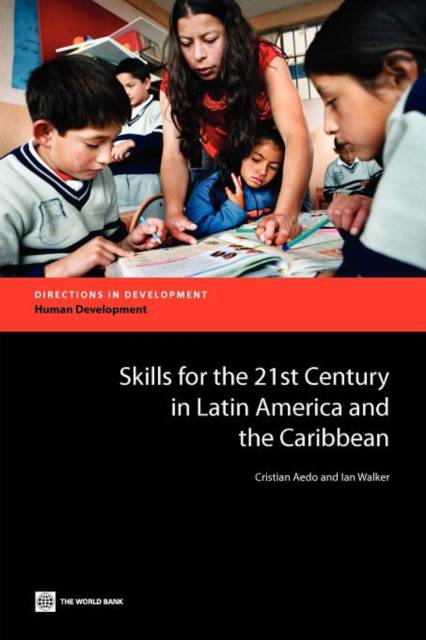
En raison d'une grêve chez bpost, votre commande pourrait être retardée. Vous avez besoin d’un livre rapidement ? Nos magasins vous accueillent à bras ouverts !
- Retrait gratuit dans votre magasin Club
- 7.000.000 titres dans notre catalogue
- Payer en toute sécurité
- Toujours un magasin près de chez vous
En raison de la grêve chez bpost, votre commande pourrait être retardée. Vous avez besoin d’un livre rapidement ? Nos magasins vous accueillent à bras ouverts !
- Retrait gratuit dans votre magasin Club
- 7.000.0000 titres dans notre catalogue
- Payer en toute sécurité
- Toujours un magasin près de chez vous
44,45 €
+ 88 points
Description
"This report contributes to the debate about the quality of education and returns to education investment in Latin America and the Caribbean (LCR). It aims to improve our understanding of the links from investment in education and training to labor market outcomes and to provide a basis for policy choices that will strengthen future outcomes. The report is organized in four main chapters. Chapter 2 documents the recent downturn in education earnings premia using standard 'mincerian' regressions based on household survey data. Chapter 3 explores the underlying supply-side and demand-side drivers of the trends in premia. It documents the recent expansion of education coverage in LCR, benchmarks it against other regions, and presents an in-depth analysis of the relative importance of shifts in the supply and demand for skills in generating declining earnings premia. Using a methodological approach first developed by Katz and Murphy, it concludes that demand-side changes appear to be the critical factor. It also analyzes the role of institutional factors, finding that minimum wages also have likely played an important role in the compression of labor earnings.
Spécifications
Parties prenantes
- Auteur(s) :
- Editeur:
Contenu
- Nombre de pages :
- 142
- Langue:
- Anglais
- Collection :
Caractéristiques
- EAN:
- 9780821389713
- Date de parution :
- 03-02-12
- Format:
- Livre broché
- Format numérique:
- Trade paperback (VS)
- Dimensions :
- 152 mm x 229 mm
- Poids :
- 199 g

Les avis
Nous publions uniquement les avis qui respectent les conditions requises. Consultez nos conditions pour les avis.






